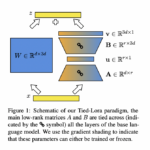The Rise of Artificial Intelligence in 2023
In 2023, one of the prominent headlines making waves is the advent of artificial intelligence (AI). News 2 recently delved into this transformative technology, seeking insights from an AI enterprise based in Nashville on the driving forces behind this revolution and the looming concerns about job displacement.
David Peters, a former Hollywood movie producer, reminisces about his past endeavors in the film industry, citing his work on the Sony Pictures production “Felon” as a notable project. Transitioning from the glitz of Hollywood, Peters now spearheads robotics programming at Universal Logic in Nashville, serving as its CEO since the establishment of the company in 2008. Universal Logic stands at the forefront of AI innovation, pushing boundaries and exploring the vast potential of artificial intelligence applications.
Assuaging fears surrounding AI, Peters emphasizes that rather than posing a threat, this technology is poised to enhance and elevate human lives significantly. He envisions AI making substantial contributions across various sectors, from optimizing warehouse operations to revolutionizing healthcare practices.
In the realm of logistics, AI plays a pivotal role in streamlining tasks such as handling heavy packages with precision and efficiency. Peters elucidates on the intricate processes involved, where AI algorithms dictate the optimal arrangement of items on pallets, ensuring meticulous organization and load distribution.
The healthcare industry stands to benefit immensely from AI integration, particularly in the realm of pharmaceutical services. Automation in prescription fulfillment processes ensures accuracy and safety, with stringent checks in place to verify medication contents and prevent errors.
Reflecting on the evolution of AI, Peters underscores the significant advancements driven by enhanced algorithms and accelerated computing capabilities. The ability to process vast amounts of data swiftly and concurrently has propelled AI into new realms of innovation and efficiency.
Addressing concerns about job displacement, Peters draws parallels to historical industrial shifts, likening the evolution of AI to the transformative impact of the assembly line. He envisions a future where workers adapt and upskill in tandem with AI developments, fostering collaboration and coexistence with intelligent technologies.
Dispelling dystopian narratives often associated with AI, Peters dismisses notions of machines possessing human-like qualities such as emotions or consciousness. He emphasizes the irreplaceable human elements of intuition and empathy that remain beyond the reach of artificial intelligence.
Looking ahead, Peters advocates for the formulation of new regulatory frameworks to safeguard intellectual property rights in the age of AI, highlighting the importance of protecting creative works from unauthorized replication by automated systems.






